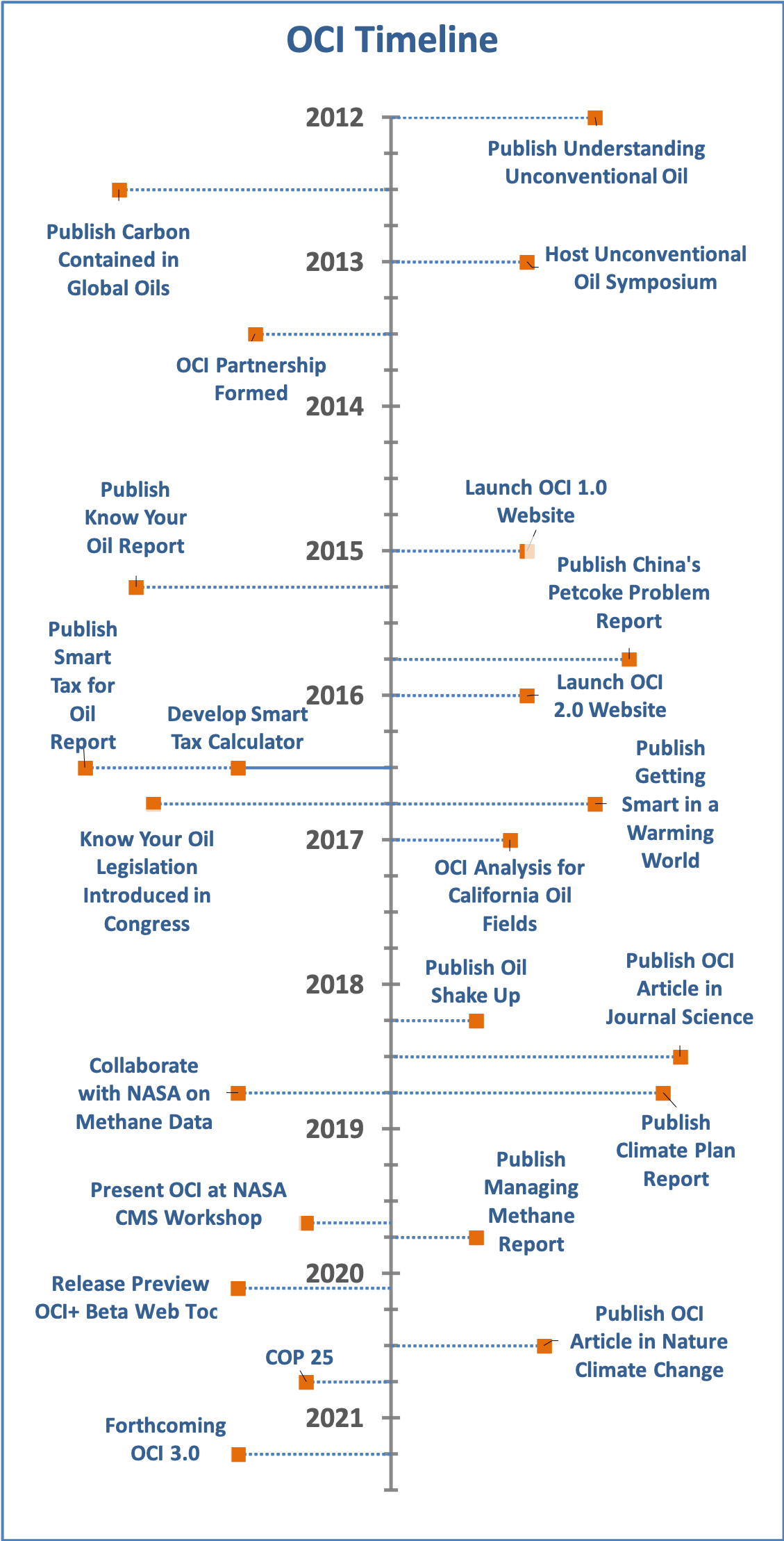Oil and gas are central to the current climate debate in our warming world
Timeline:
Development of the Oil Climate Index plus Gas
In 2013, Gordon assembled a group of researchers and initiated construction of the Oil Climate Index (OCI), an open-source tool that estimates, compares, and runs scenarios on the life-cycle greenhouse gas emissions of global oil resources. The goal of the OCI is to alert stakeholders to the wide-ranging climate impacts of different resources with an eye toward informing investment, development, operations, and governance.
The first version of the OCI was completed in 2015 along with her partners Adam Brandt at Stanford University, Joule Bergerson at the University of Calgary, and Jonathan Koomey. The OCI has since undergone extensive development and application.
Gordon has conducted extensive outreach to stakeholders to present the OCI and its climate policy applications, for example, as the basis for Congressional legislation, Know Your Oil Act, in Congressional testimony on the climate impacts of lifting the crude oil export ban, in Norway’s reconciliation of its oil operations and climate commitments, and in China on its import ban of high-sulfur petroleum coke from the United States followed by India banning its burning nationwide. California introduced Know Your Oil Act legislation in 2020. The OCI+ and its underlying models have been peer reviewed and published in major journals.
In 2020, Gordon joined RMI. Together with colleagues in the Climate Intelligence Program, RMI re-launched the Oil Climate Index plus Gas (OCI+). For the complete story of the OCI+, read Gordon’s book, No Standard Oil: Managing Abundant Petroleum in a Warming World (Oxford University Press), 2022.
A more detailed history of the OCI can be found here.

